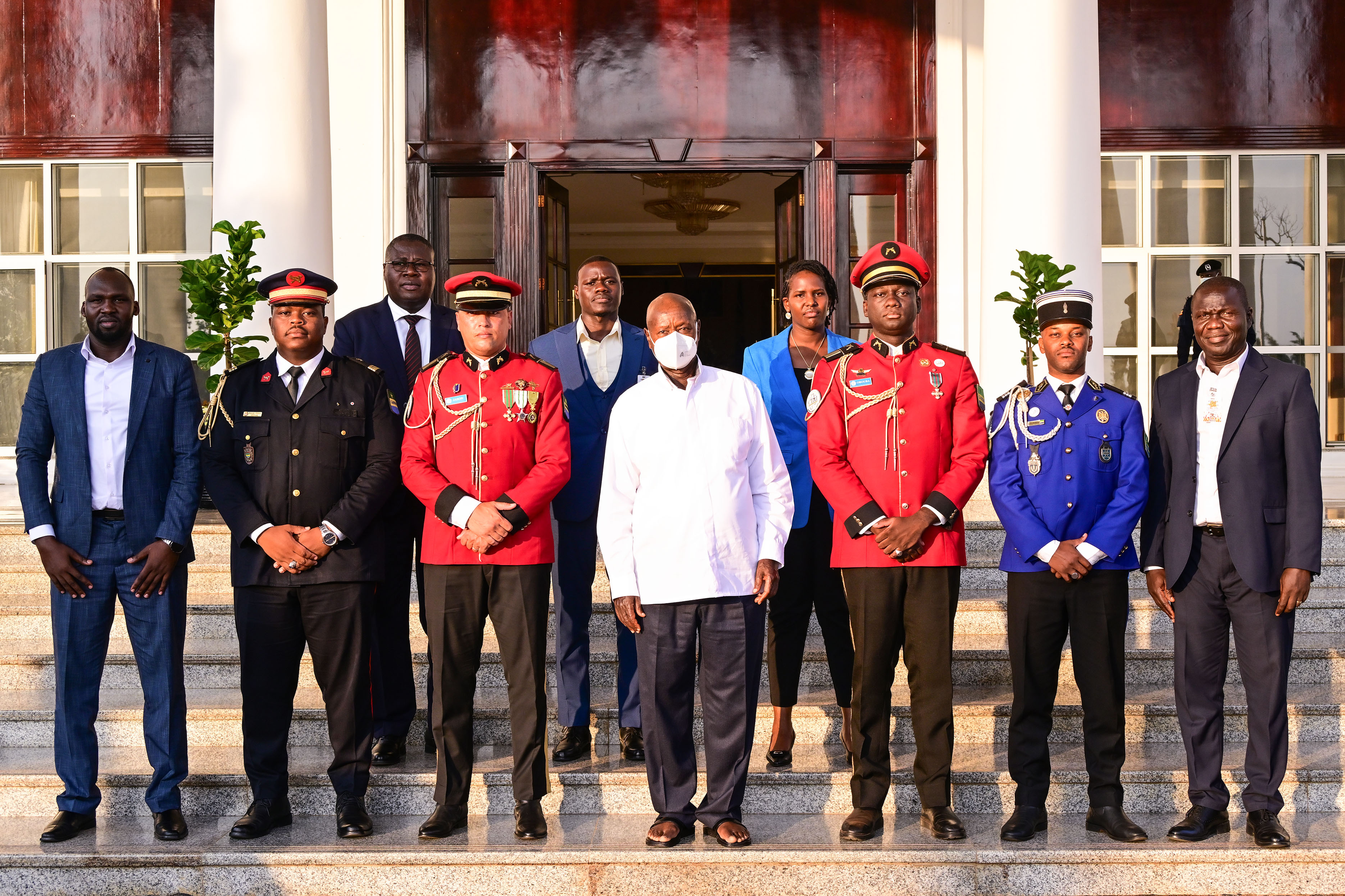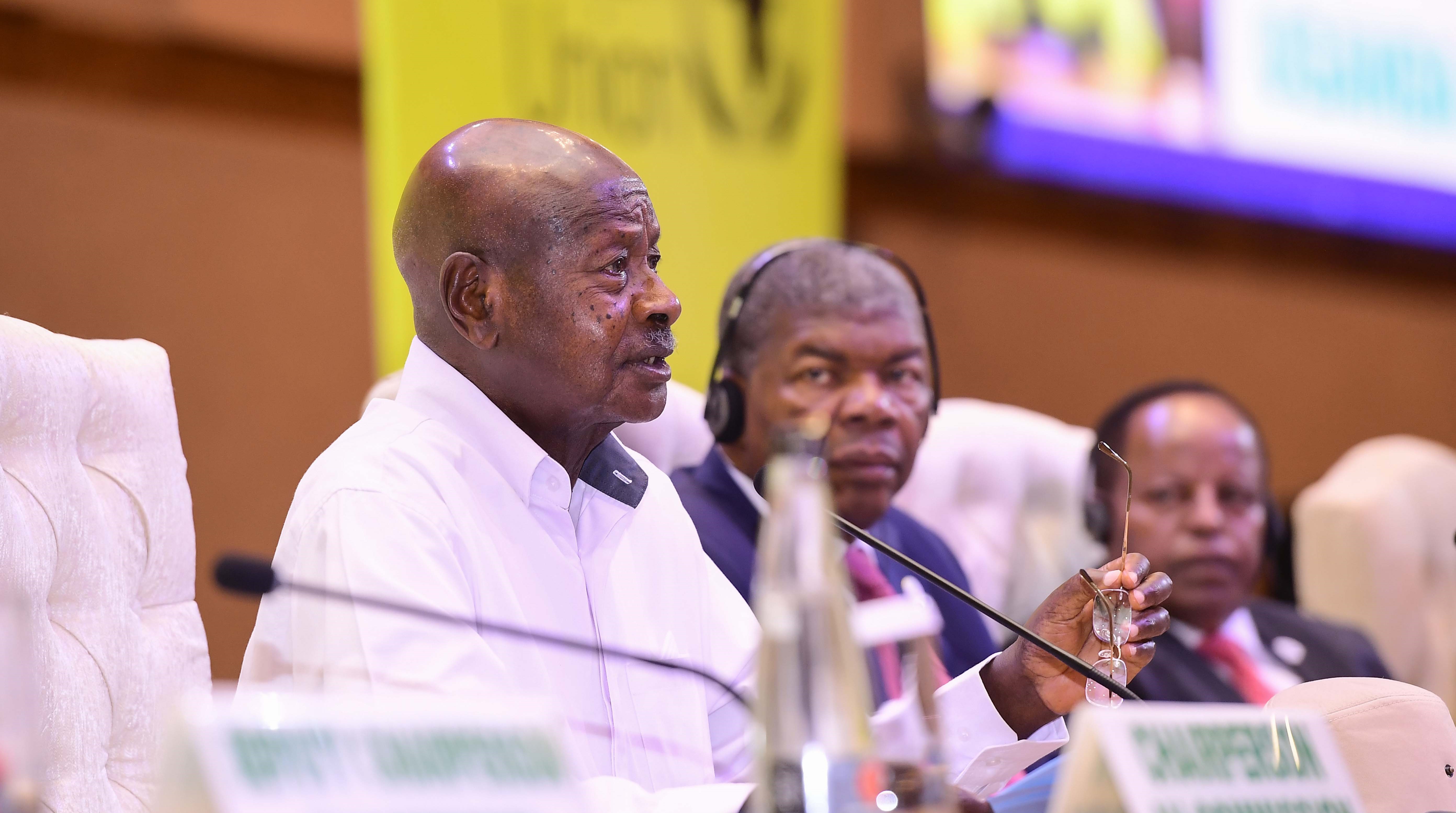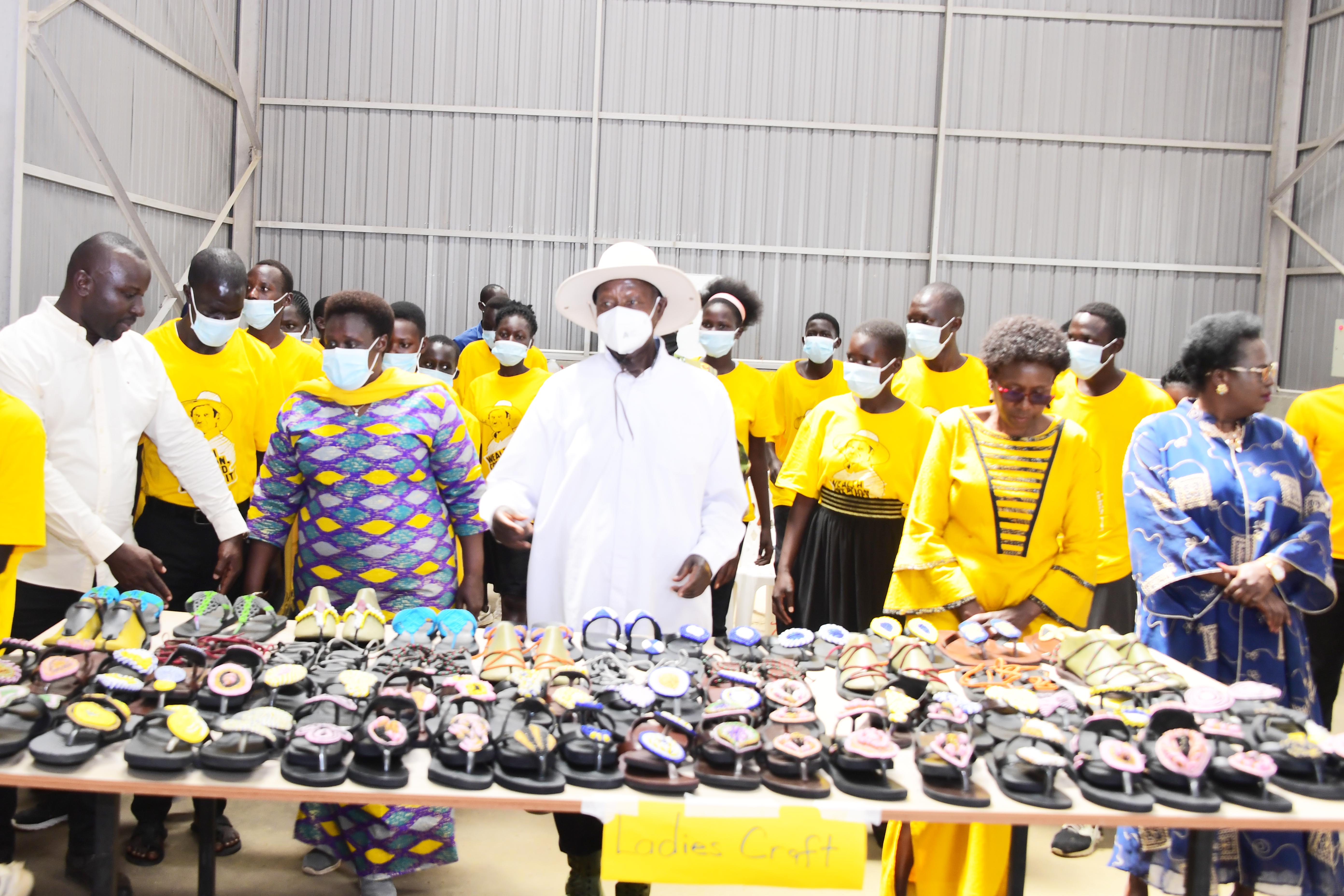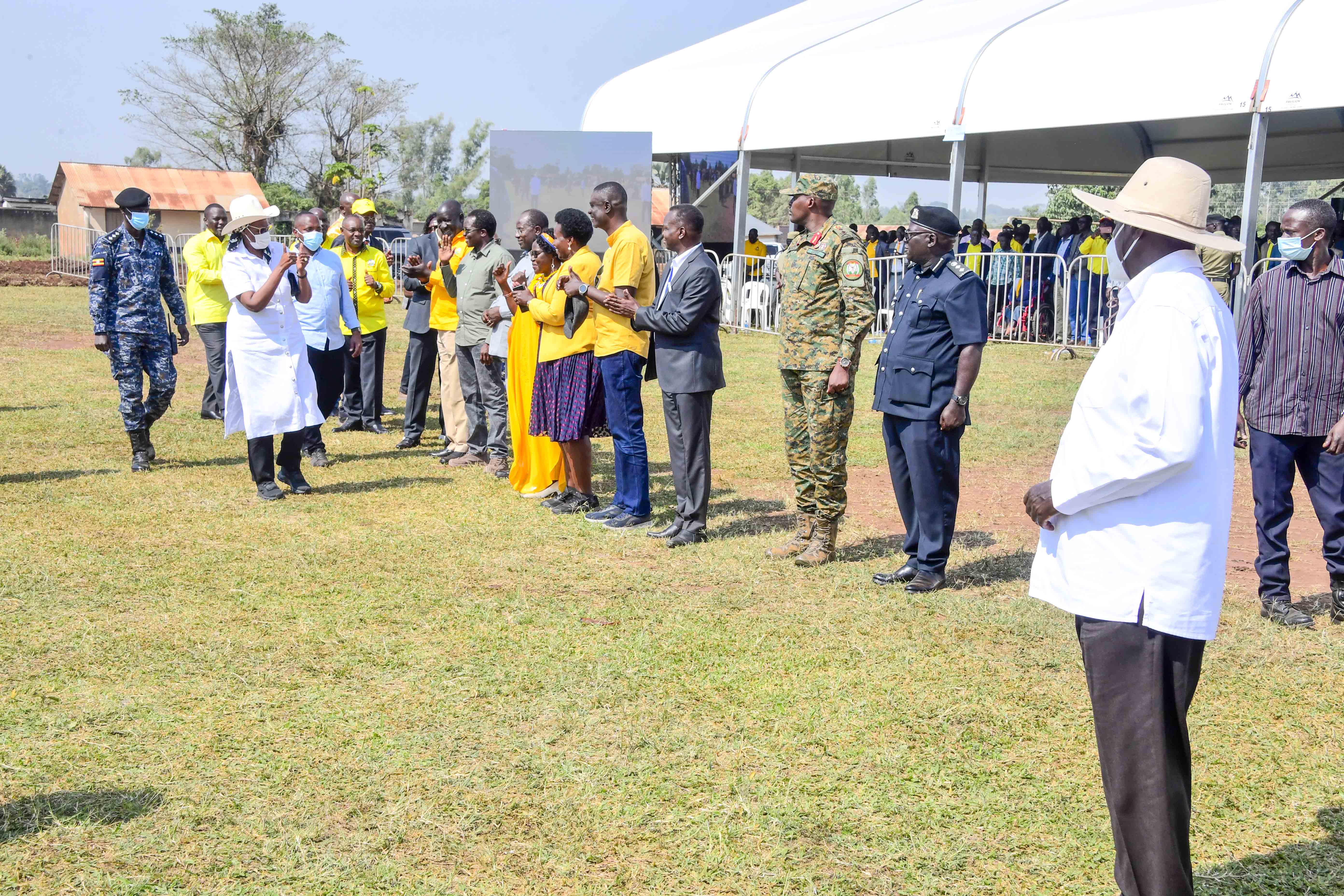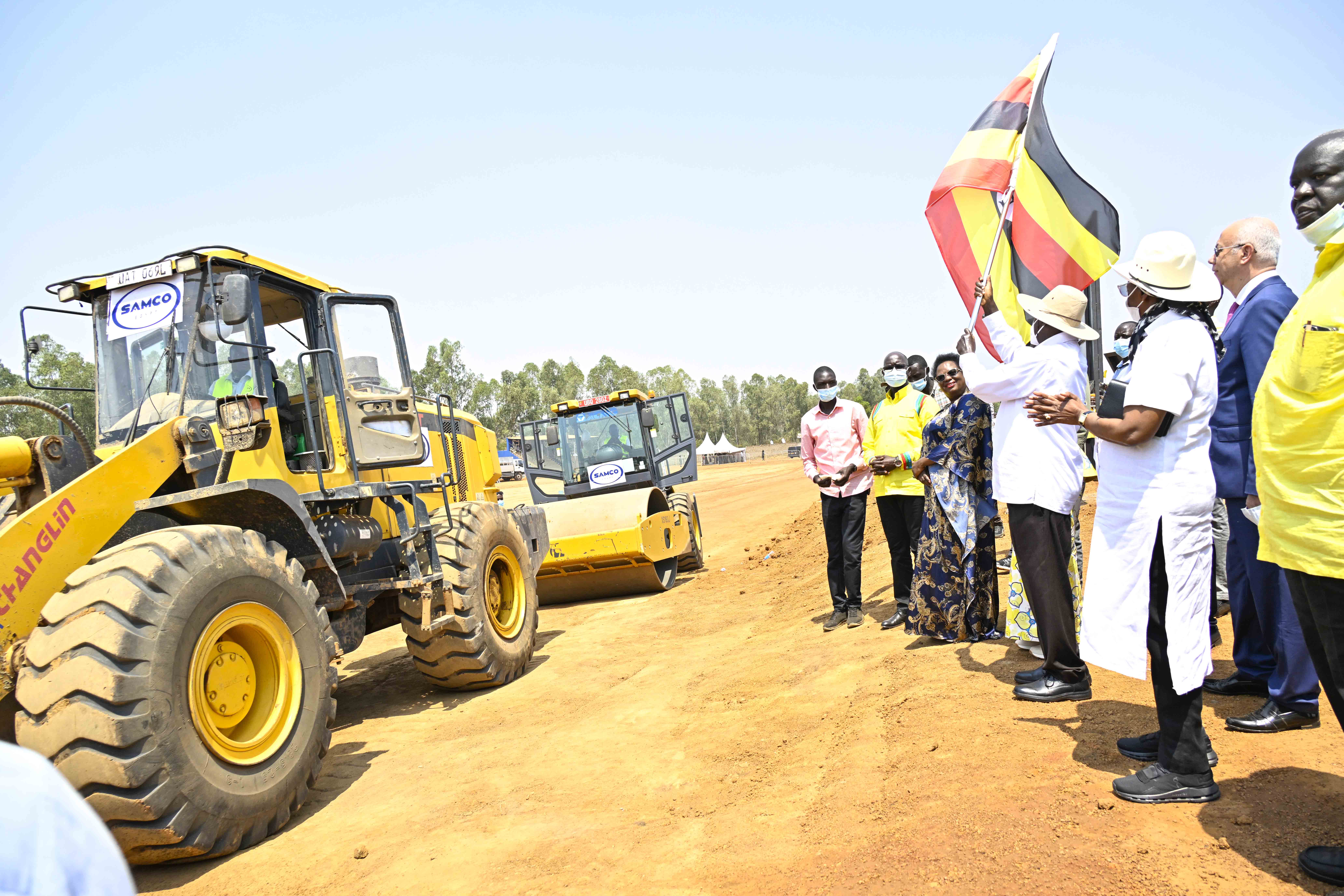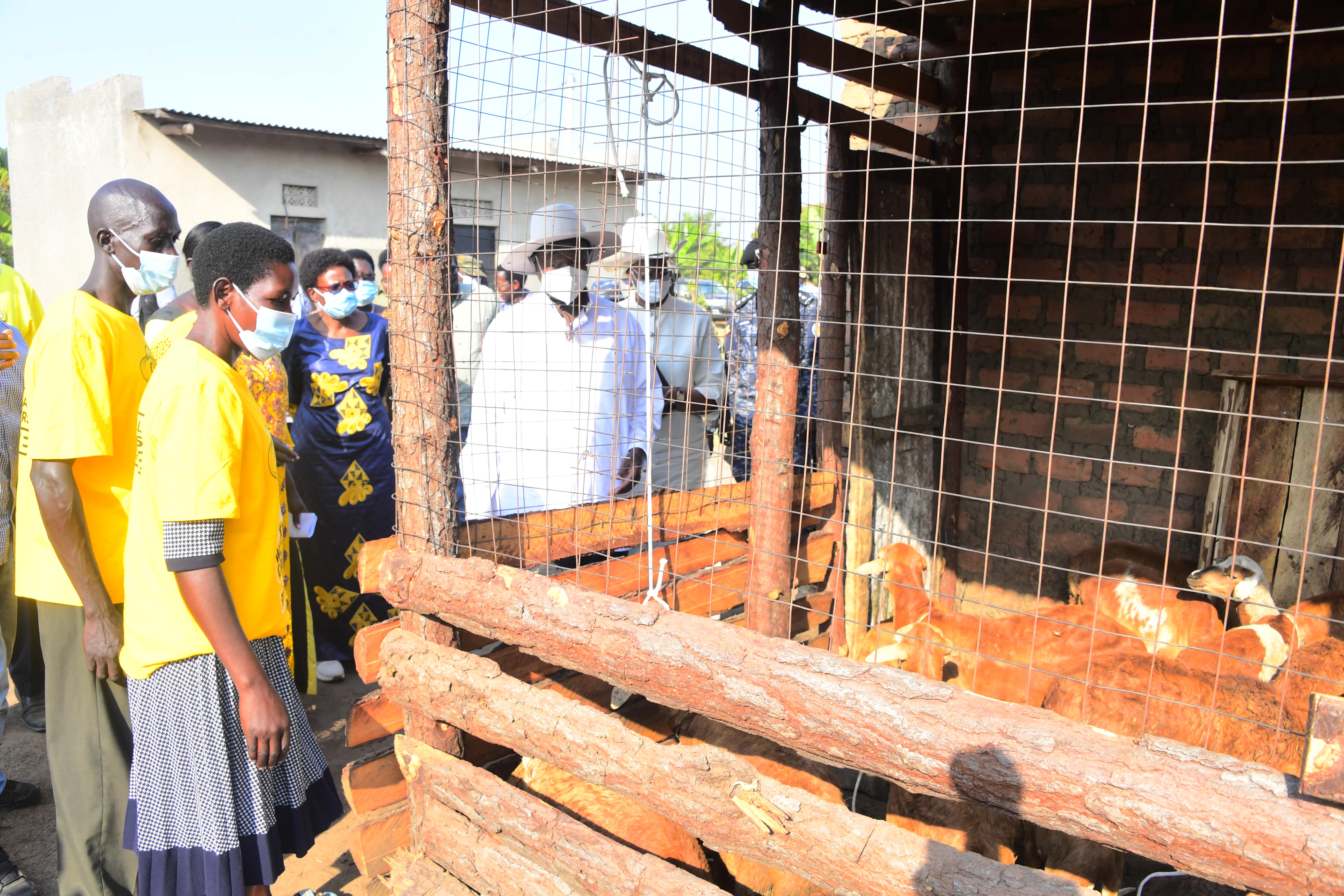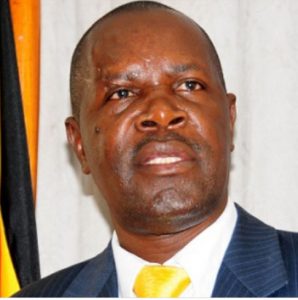“USE PREVAILING PEACE TO CREATE WEALTH” - PRESIDENT MUSEVENI RALLIES PEOPLE OF LANGO
President Yoweri Kaguta Museveni has urged the people of the Lango subregion to use the prevailing peace in the region to create wealth and chase poverty out of their homes.
According to the President, who is in the region to assess the performance of the Parish Development Model (PDM), the prevailing peace is a fundamental driver of wealth creation in Uganda through enabling investment, business growth, and job creation.
“When you are planning public affairs, first of all, think about peace. How can we bring and maintain peace? And anybody who's trying to disturb peace, don’t allow them because peace is an infrastructure for everything. You can get a very rich country like Congo, always very rich with a lot of minerals and so on, but you can see what is happening there; it cannot develop,” H.E. Museveni said.
The President made the remarks on Wednesday, January 29, 2025, while addressing leaders from the Lango sub-region at Ikwera Boma play ground in Aduku town council, Kwania North, Kwania district.
The Lango sub-region, which includes districts such as Lira, Apac, Oyam, Kole, Dokolo, Amolatar, Alebtong, Otuke, and Kwania, is now on a path of development, with improvements in various sectors after successful recovery from the devastating effects of the Lord’s Resistance Army (LRA) insurgency and other conflicts that affected the region.
President Museveni reassured the leaders of further improving the infrastructure in the region, such as roads connecting the different parts of the region to foster wealth creation. He mentioned the Lira-Kamdini Road, spanning 66.5 kilometers, which is currently undergoing extensive rehabilitation, and the construction of the road connecting Ochero, Amolatar to Namasale, and Dokolo.
“But I want you to be systematic and not to do things at once. We can actually make mistakes because we have diverted more than Shs. 1 trillion to PDM. In five years, you’re talking of seven trillion shillings, which would work on all the roads in Uganda. All those roads you’re talking about, we would finish them in five years. But Apio, who bought sheep to create wealth, would not have bought them,” the President noted, while cautioning the people not to rush the government into doing everything at once.
“You should stop confusing the driver. I’m the driver of the bus. I know where to stop and where to slow down. If I’m driving and I slow down and you shout at me for slowing down, you’re going to make me collide. We may have slowed down on the roads, but it's because we are dealing with PDM. So please be guided by flexibility. This is how you succeed,” he added.
In the same vein, President Museveni called upon the people of Lango to differentiate between development, which is for all Ugandans, and wealth creation, for which, without it, poverty remains in their homes.
He said even if the government provided roads, water, electricity, health centers, and schools, and people don’t change their mindset to join commercial production, they will remain poor.
Giving examples of the farmers he has visited in the Lango subregion, the President was happy to learn that people in the countryside are embracing the PDM initiative to get out of poverty.
“Yesterday I visited a young boy called Jowel Okello in Amolatar. He's an engineer, but he has gone into farming, and he has got a good farm there with goats and sheep, and he wants to add. So, Jowel Okello, instead of being a job seeker, he has created money, but he has also created jobs—38 of them,” H.E. Museveni said, noting that even those that have not benefited are optimistic and looking forward to being supported.
“When I was coming here, I stopped at a swamp, about four kilometres from here, and some villagers there came to join me; they told me that poverty is very serious here. Then I said to them, Have you heard about PDM? They said yes, but the ones that have benefited are on the other side. For us, we shall get the next time. I was very happy with that,” he added, while expressing confidence in the capacity of the PDM to create more jobs for Ugandans than in the other different sectors of the government, such as teaching, police, army, and healthcare.
“The population of Uganda is now 46 million. So, this job you are talking about is actually 1% of the whole population. So, you cannot solve the problem of employment through the government. It is the creation of new jobs, which is by individuals, companies, cooperatives, sometimes by the government, through some parastatals, that will create jobs,” the President emphasised.
“The few families I have visited, you can see this PDM is going to change our people. Concentrate on it, because many of the people are able to move on their own.”
About the fishing problem on the lakes, the President promised to return in May and sort out the matter, and in his view, the activity should be left to the indigenous people involved in fishing, who should also be entrusted to protect the lake for Ugandans.
“I brought in the army because the fish was disappearing. And of course, the army also, when they came, also had their own problems. You know, and so on. We are going to deal with them on that but still, the original problem was the original fishermen. If those were there, then the soldiers would never have come there. So therefore, I want you to think about this. I want us to have another meeting in May so that we agree on who should be supported to be on the lake and why they must be allowed,” President Museveni clarified.
About politics, President Museveni cautioned the people of the Lango subregion against getting involved in the bad politics of identity.
The Secretary General of the National Resistance Movement (NRM), Rt. Hon. Richard Todwong, thanked President Museveni, who is also the National Chairman of the party, and the First Lady Maama Janet Museveni for visiting the Lango subregion.
He also thanked the people of Lango for loving NRM and President Museveni, which he said was well demonstrated in the long memorandum delivered on behalf of the people of Lango by Hon. Judith Alyek , which highlighted the achievements of NRM in the region.
“Your Excellency. We thank you so much for giving your all to this country and for sacrificing everything about you for the country. You have taught us so many things. We learn through your works; we learn through your actions, and we learn through your body gestures. We have learned from you. We have loved you. You have taught us how to prioritize things. You have taught us how to plan for the masses. We call you a teacher. We call you a leader, a mentor. You have not rested from making sure that all Ugandans are out of poverty. You have fought all the wars. You have liberated this country and brought peace. You have decentralized governance. You have promoted infrastructure and human resources, but still you are not satisfied because our people are still poor. You have launched yet another front to fight poverty; to this we thank you so much,” Rt. Hon. Todwong said.
On behalf of the National Resistance Party, he re-echoed the request of the people of Lango and from all over the country to request President Museveni to offer himself for re-election as President in the upcoming 2026 general elections.
Earlier, Hon. Judith Alyek, the Chairperson Lango Parliamentary Group and Kole Woman MP expressed gratitude to the President for the peace and all the efforts to get Ugandans out of poverty.
“Your Excellency Lango subregion that was once the epicentre of insurgencies during the LRA period has now achieved total peace and security, which has formed a foundation for socio- economic development,” Hon. Alyek said, while extending gratitude for the strides made over the past years in the areas of education, several infrastructure developments, and the support in constructing the cultural chiefdom headquarters, which is a key ingredient in the preservation and promotion of culture and rich heritage.
She also highlighted areas where additional support is crucial to further the development, such as the construction of Lira Airport, for which land has been secured, the construction of national roads and bridges, and the establishment of a regional driving license issuance center, among other requests.
Earlier, the meeting was treated to presentations from several officials, such as Hon. Dennis Galabuzi Ssozi, the National Coordinator of the Parish Development Model; Hon. Kyeyune Haruna Kasolo, Minister of State for Microfinance, who presented on the state of Emyooga in the region; and Hon. Musa Ecweru on the status of the road infrastructure in the Lango region.
The ceremony was attended by several dignitaries, including the First Lady and Minister for Education and Sports, Maama Janet K. Museveni, the Government Chief Whip, Hon. Hamson Dennis Obua, ministers, Members of Parliament, security chiefs, and religious leaders.
2025-01-29
